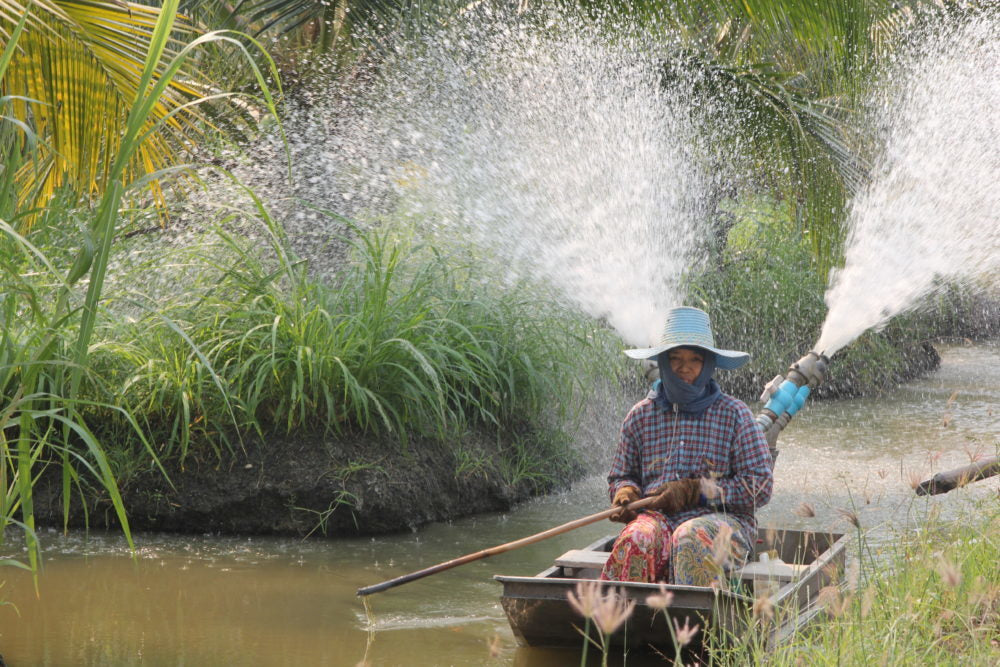Biodiversity generally refers to the variety found amongst all species of living organisms, including plants. When it comes to coconuts, we single source the Nam Hom variety, but that doesn't mean thats the only crop growing on the farms! In fact, the coconut trees are healthier and the fruit tastes better when sustainable agriculture is practiced. Not only is it better for the final product, but also the soil, water quality, and therefore the surrounding community of our farmers in Ratchaburi, Thailand.
Our smallholder farmers are stewards of the land which serves as the basis for a healthy ecosystem. In order to conserve and protect what is theirs, they employ organic farming methods and conservation of natural resources. For example, practices like earthworm composting and fruit intercropping help to sustain thriving soil over time, especially since they do not use conventional shortcuts like synthetic nitrogen to get more yield out of the trees in an unsustainable manner.
Here is how Copra works with our farmers to practice sustainable agriculture:
Earthworm Composting
Slowly but surely, earthworms help turn manure and other organic matter into dark, nutrient-dense and oxygenated soil which we spread on plantations to give trees an organic boost.
Fruit Intercropping
Intercropping serves two purposes:
- Farmers get a different source of income.
- It increases the environmental health of the plantation because a variety of plants with different root systems and nutrient needs help stabilize the soil and prevent erosion, draw in more water to the soil, and don't overuse only certain nutrients.
Combining two plants in the same place can get tricky. You don't want the two competing for room, sun, water, and nutrients. This is another benefit of intercropping different plants such as lemongrass, mangoes, and bananas, which all prefer different light, humidity and nutrient conditions.
100% Pesticide and Synthetic Free
Our farmers do not use synthetic, greenhouse gas-producing fertilizer.
We use totally natural methods to help control pests, such as other insects and natural insect repellents. We are also lucky because coconuts are extremely difficult for any insect to penetrate!
Conservation of Surrounding Natural Resources
We cut the use of excess water by drawing from natural irrigation channels, a resource that is luckily abundant in Ratchaburi Province. Alternating with rows of trees, these also help hydrate the soil from the bottom up.
The result? Naturally, lush coconut groves !
A biodiverse ecosystem helps ensure not only a stable and sustainable supply of sufficient quantities of food, but also plays a major role in ensuring the quality of the nutrients. It's harder work than spreading synthetic fertilizer and spraying trees, but the final product is worth it. Copra is invested in the quality of the soil and larger ecosystem, quality of life for farmers, and of course, the quality of the raw material itself.

